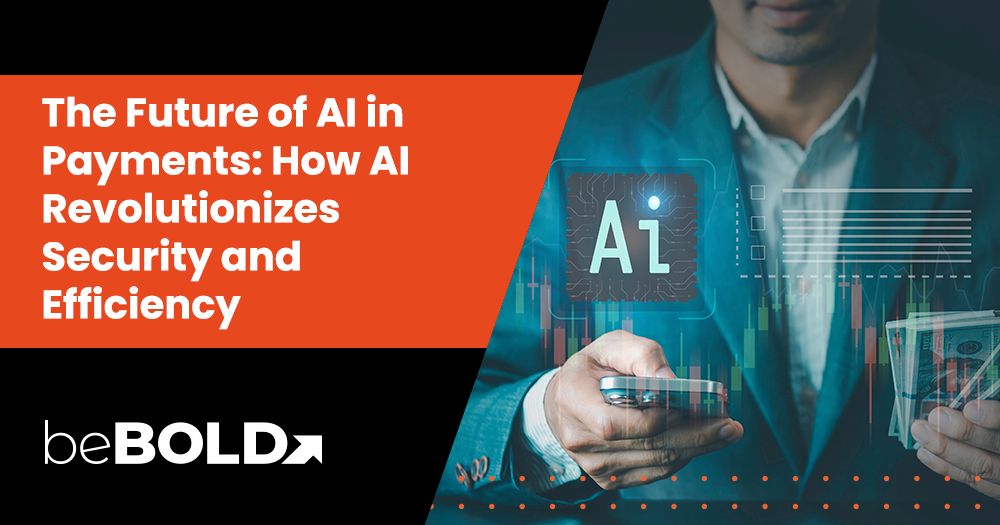Key Highlights
- AI is transforming payment systems — boosting security, efficiency, and personalization at every step of the transaction journey.
- Real-time fraud detection powered by machine learning helps prevent financial losses before they happen.
- Invoice processing, reconciliation, and compliance are now automated with AI, reducing errors and speeding up operations.
- Chatbots and virtual agents are redefining payment-related customer service with instant, around-the-clock support.
- Generative AI is reshaping personalization, from creating secure virtual cards to handling complex queries contextually.
- Voice-activated payments and blockchain-AI integration are emerging trends, setting the stage for hands-free, tamper-proof transactions.
- Top players like Visa, JPMorgan, and Stripe are already using AI to enhance fraud prevention, streamline operations, and expand globally.
- Despite the promise, challenges like data privacy, regulatory compliance, and integration with legacy systems require careful navigation.
- AI helps businesses make smarter decisions through predictive analytics, forecasting cash flow, and identifying payment risks.
AI is transforming the payments landscape—making transactions faster, smarter, and more secure. From real-time fraud detection to personalized checkout experiences, it’s helping businesses meet growing demands for speed, safety, and efficiency. In this blog, we explore how AI is reshaping modern payment systems and why now is the time to adapt.
What is AI in Payments?
AI in payments refers to the use of artificial intelligence technologies—like machine learning, data analytics, and automation—to streamline and enhance financial transactions. Instead of relying on manual processes, AI can analyze vast amounts of payment data in real-time to detect buyer fraud, predict patterns, and make smarter decisions.
From automating invoice matching and reconciliation to instantly flagging suspicious transactions, AI helps payment systems become faster, more accurate, and more secure. It reduces human error, speeds up approvals, and adapts quickly to changing customer behaviors. Whether you're a financial institution, a payment processor, or an eCommerce business, AI enables you to handle high transaction volumes with greater confidence and control.
What Are the Applications of AI in Payments?

AI in payments isn't just about automation but solving real operational challenges. From fraud prevention to smoother invoice handling, here's how AI tackles the pain points that slow teams down.
1. 🤖 AI for Invoice Management
Say goodbye to chasing invoices or fixing typos. AI extracts data, matches it to POs, and routes it for approval—instantly flagging issues to reduce delays and keep cash flow smooth.
2.🔒 AI for Security & Compliance
AI helps you stay compliant by monitoring transactions, logging activity, and flagging violations. It ensures KYC/AML rules are met—like a watchdog that never sleeps.
3. 🚨 AI for Fraud Prevention
Real-time fraud detection uses machine learning to spot and block suspicious behavior instantly. The more it sees, the smarter it gets—stopping threats before they hit.
4. 💬 AI for Customer Service
Chatbots handle common payment questions like refunds and billing, giving users instant answers and freeing your team to focus on complex support cases.
5. 📊 AI for Forecasting & Planning
AI analyzes past trends and customer behavior to predict cash flow, payment timing, and demand. It helps you plan smarter and avoid financial surprises.
6. ⚙️ AI for Process Optimization
AI streamlines repetitive payment workflows—from reconciliation to vendor onboarding. It identifies bottlenecks, automates routine tasks, and boosts overall efficiency across the payment lifecycle.
Evolution of Payment Systems in AI
Artificial intelligence (AI) is rapidly changing how payments work. What used to be slow, manual processes are now faster, smarter, and more secure.
AI helps detect and prevent fraud in real time, making transactions safer for both businesses and customers. Financial institutions use machine learning and neural networks to analyze payment data, spot unusual activity, and streamline approvals. From improved security to smoother user experiences, AI is helping the payments industry keep up with the demand for fast, seamless digital transactions.
Key AI Technologies Powering Modern Payment Systems

To understand how AI is reshaping digital payments, it helps to look at the core technologies driving the shift. These tools work behind the scenes to make transactions faster, smarter, and safer.
1. Machine Learning (ML)
ML helps payment systems learn from data—without needing everything spelled out. It can spot unusual activity, predict customer behavior, and improve fraud detection by recognizing patterns humans might miss.
2. Natural Language Processing (NLP)
NLP allows systems to understand and respond to everyday language. It powers chatbots, voice assistants, and virtual agents that can handle billing or payment questions without passing you to a human rep.
3. Predictive Analytics
By studying past data, predictive tools can forecast future trends—like spikes in transaction volume or the risk of missed payments. This helps businesses plan smarter and reduce losses.
4. Generative AI
This technology goes a step further by creating human-like responses or visuals. In payments, it's often used in virtual customer service, offering quick, personalized help without added cost.
Common Technologies Behind AI in Payments
AI is quietly powering the future of payments—making systems smarter, transactions safer, and operations more efficient. Let’s break down the core technologies behind this shift:
1. Machine Learning Algorithms
At the core of AI-driven payments are machine learning (ML) algorithms. These systems analyze massive datasets to recognize payment patterns and detect anomalies in real-time.
Whether it’s identifying unusual spending behavior, flagging fraudulent transactions, or optimizing customer recommendations, ML gets smarter with every data point. It’s a dynamic layer of defense and personalization rolled into one.
2. Natural Language Processing
Natural Language Processing (NLP) plays a crucial role in making payment systems more intuitive and user-friendly. It powers chatbots that handle customer queries around the clock, automates invoice parsing by extracting key details like amounts and due dates, and supports voice or text-based commands for tasks like making payments or checking balances.
By enabling machines to understand and respond to human language, NLP helps streamline communication-heavy processes and enhances the overall user experience in modern payment ecosystems.
3. Robotic Process Automation (RPA)
Robotic Process Automation excels at handling structured, rule-based tasks that don’t require human judgment. In payments, RPA is used to automate workflows such as invoice processing, data entry, and reconciliation.
This reduces human error, speeds up operations, and frees teams to focus on higher-value work. It's like having a tireless back-office assistant running 24/7.
4. Deep Learning
Deep learning takes ML to the next level by using neural networks to simulate human thinking. In the payments space, it enhances fraud detection systems by identifying subtle and complex risk patterns in transaction data—far beyond what traditional models can catch.
It also supports more adaptive decision-making, allowing systems to respond dynamically to high-risk scenarios or customer behaviors in real time.
From payment matching to reconciliation, AI eliminates repetitive manual tasks that slow teams down.
Streamlining workflows improves operational speed, reduces human error, and boosts team productivity.
Benefits of AI Integration in Payments

AI payment integration offers numerous benefits to organizations. Some of these benefits are as below:
1. Enhances Security and Accuracy
AI continuously monitors transactions, detects anomalies, and flags suspicious behavior in real time—far faster than manual checks. Machine learning models that evolve over time, not only prevent fraud but also reduce errors across your payment systems.
2. Improves Operational Efficiency
From invoice processing to reconciliation, AI automates repetitive tasks and streamlines workflows. This means fewer manual interventions, quicker approvals, and faster turnaround—helping your finance teams work smarter, not harder.
3. Drives Cost Reduction
Automation naturally cuts costs by minimizing human errors, reducing delays, and decreasing reliance on large support teams. It also helps avoid costly compliance penalties by ensuring tighter controls and audit-ready records.
4. Supports Better Decision-Making
AI doesn't just react—it predicts. With real-time data and forecasting capabilities, businesses can make proactive, data-driven cash flow, payment cycles, and customer risk decisions.
5. Increases Customer Satisfaction and Trust
Faster payment resolutions, accurate billing, and 24/7 support via AI-powered chatbots improve the customer experience. Combined with more substantial fraud prevention, AI helps build long-term trust with customers and partners alike.
beBOLD Tip: AI-powered payments don’t operate in isolation—they’re one critical touchpoint in the broader eCommerce customer journey. When payment speed, security, and personalization align with discovery, consideration, and post-purchase experiences, brands see higher trust, smoother conversions, and stronger lifetime value.
Challenges and Considerations Involved in AI in Payments

AI in payments offers incredible possibilities, but it's not without its complications. From legacy systems to rising compliance expectations, businesses must navigate more than just the tech. Let's explore the real-world roadblocks that often arise when implementing AI.
1. Data Privacy and Regulatory Pressure
AI in payments often requires access to sensitive customer data, which raises significant privacy and compliance concerns. With regulations like GDPR and PCI-DSS getting stricter, companies must be cautious. For example, if a business rushes into using AI for transaction screening without aligning with data laws, it could face audits or penalties due to overlooked compliance gaps.
2. Integration with Legacy Systems
Many older payment systems aren't built to support modern AI tools. This can lead to time-consuming integration efforts or the need for middleware solutions. Think of a traditional bank trying to plug AI into its outdated infrastructure—it may encounter technical friction, cost overruns, or deployment delays.
3. Ongoing Oversight and Ethical Risks
While AI can automate many functions, it isn't foolproof. Bias in algorithms, unclear decision-making, or unintended consequences can still arise. Say an AI-powered approval system starts making inconsistent decisions—it would need human review and intervention to ensure fairness and accuracy.
4. Cost and Scalability Challenges
Adopting AI can be expensive, especially for small or mid-sized businesses. Between upfront investments, hiring the right expertise, and scaling the infrastructure, costs can quickly pile up. A company might see clear benefits of AI-driven invoicing or fraud detection but hold off due to the financial and operational commitments required to implement it.
Want to understand how Amazon’s new AI impacts search, ranking, and conversions? Explore our full breakdown in the Amazon Rufus AI Guide.
What Are the Future Trends in AI and Payments?

The future of AI in payments isn't just promising—it's already unfolding. Financial institutions are rapidly adopting cutting-edge technologies to stay ahead of fraud, streamline operations, and elevate customer experiences. As generative AI, blockchain, and voice tech mature, the payment landscape is shifting toward faster, more intelligent, and more secure solutions that align with user expectations.
1. Generative AI: Beyond Chatbots and Into Personalization
Generative AI is no longer just a content creation tool—it's becoming a cornerstone of payment innovation. In the payments space, it powers advanced virtual agents to handle complex queries, generate personalized support messages, and even create secure, one-time-use virtual card numbers for safer transactions. As this tech evolves, businesses will unlock new ways to deliver real-time, contextual support at scale—without inflating customer service costs.
2. Blockchain Integration: Security and Transparency in Every Transaction
The convergence of AI and blockchain sets new trust and payment transparency benchmarks. AI can detect anomalies in real time, while blockchain ensures every transaction is securely recorded in an immutable ledger. Together, they create a system that's resilient to fraud and manipulation. From faster cross-border settlements to tamper-proof audit trails, this synergy is poised to redefine how financial institutions manage and verify transactions.
3. Voice-Activated Payments: Hands-Free, Hassle-Free
With the rise of smart devices, voice-activated payments are becoming a convenient frontier for AI in fintech. Powered by Natural Language Processing (NLP), these systems allow users to check balances, transfer funds, or pay bills using their voice. As voice tech becomes more accurate and secure, it's enabling a frictionless experience—especially valuable in on-the-go or multitasking scenarios where ease and speed are everything.
As payments become more autonomous and decision-driven, understanding how AI systems act independently is key—explore how this evolution is structured in the Agentic Commerce Protocol
Use Cases of AI in Payments
Several financial institutions and payment providers have tested and applied AI integration in payments, showing promising results. Here, we discuss some successful use cases, including Visa's Scam Detection Initiative, JPMorgan's AI Coding Assistant, and Stripe's Market Expansion. Let's discuss them below.
1. Visa's Scam Detection Initiative

Visa, one of the global leaders in the payment industry, has leveraged generative AI models to enhance its fraud detection capabilities. Its system can swiftly analyze large amounts of transaction data and promptly identify real-time suspicious patterns. In May 2024, Visa launched the Visa Account Attack Intelligence (VAAI) Score.
This innovative tool identifies the likelihood of enumeration attacks in card-not-present transactions, reigning in $1.1 billion in fraud losses. This initiative underscores how intelligent tools fortified by AI can offer a considerable advantage in securing payments against fraudulent activities.
2. JPMorgan's AI-Powered COIN Program

JPMorgan Chase has been at the forefront of using AI to streamline complex financial processes. One of its standout innovations is COIN (Contract Intelligence), a machine learning program designed to review and extract key data from commercial loan agreements.
What previously took thousands of hours of manual legal review is now handled in seconds—COIN has helped the bank save over 360,000 hours of human work each year. While not directly involved in processing payments, COIN highlights how AI can eliminate bottlenecks, reduce errors, and improve operational efficiency across the financial ecosystem—ultimately contributing to faster, smarter, and more secure transaction experiences.
3. Stripe's AI-Driven Fraud Prevention and Global Growth

Stripe has pioneered using AI to enhance security and scale its operations globally. Its advanced machine learning models scan billions of data points across the platform to proactively detect and block fraudulent transactions—preventing over $1 billion in fraud for its customers back in 2016 alone.
But Stripe hasn't stopped at just fraud prevention. The company also leverages AI to evaluate complex legal, financial, and cultural factors, enabling faster and smarter expansion into new markets. This blend of intelligent risk management and strategic growth showcases how AI can be a game-changer for payment platforms aiming to operate globally.
beBold Digital Promotion - From Smarter Payments to Smarter Growth
With smarter AI-powered payment solutions in place, the next step is increasing your traffic and sales. BeBold Digital specializes in Amazon SEO, advertising, and full account management to help you maximize your growth. Book a free consultation today!
Conclusion
Artificial intelligence is no longer just a future concept in the payments industry—it's a powerful force already reshaping how transactions are processed, secured, and experienced. From detecting fraud in real-time to enabling hyper-personalized support and automating routine operations, AI solves long-standing pain points while opening the door to new possibilities.
However, this transformation doesn't come without its challenges. Issues like data privacy, ethical oversight, and integration with legacy systems must be addressed with care. The organizations that succeed will not be the ones with the most technology but the ones that balance innovation with responsibility.
As technologies like generative AI, blockchain, and voice-enabled payments gain traction, we're heading toward a payment ecosystem that's not only faster and safer but also smarter and more intuitive. The road ahead is promising, and for businesses willing to embrace this shift, AI offers a strategic advantage in delivering seamless, future-ready payment experiences.
Frequently Asked Questions
How does AI improve security in payment systems?
By utilizing advanced algorithms and machine learning, AI enhances security in payment systems by detecting anomalies, preventing fraud, and ensuring secure transactions. AI continuously learns from patterns to adapt and strengthen security measures proactively.
Can AI help reduce transaction failures?
Leveraging AI for real-time data analysis, fraud detection algorithms, and predictive analytics can minimize transaction failures. AI enables proactive identification of potential issues, leading to smoother payment processes and reduced transaction errors transaction errors.
What are the challenges of integrating AI in payments?
The challenges of integrating AI in payments include ensuring data privacy amidst handling sensitive information, dealing with potential algorithmic biases, managing the high cost of implementation, and maintaining compliance with evolving regulatory frameworks. Effectively navigating these challenges is key to successfully implementing AI in payments.
How will AI shape the future of digital payments?
AI will dramatically shape the future of digital payments through automation and efficiency improvements, enhanced fraud detection and prevention, personalized customer experiences, and facilitated transaction processes. Innovations like Generative AI, blockchain integration, and voice-activated payments signify an exciting future for AI's role in the payment industry.
Stay ahead with AI-powered payments—secure, efficient, and seamless. Partner with beBold Digital today! Contact us now!









Comments